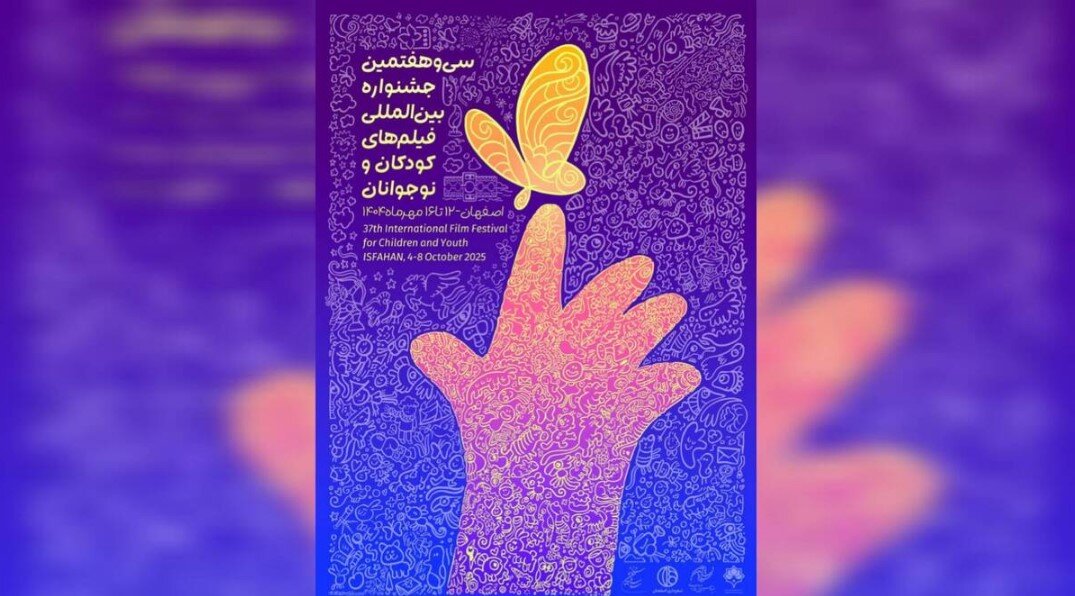Isfahan children’s film festival to be held in multiple provinces across country

TEHRAN- The 37th edition of the International Film Festival for Children and Youth is set to be inaugurated on Saturday in the 19 provinces across Iran, with Isfahan taking on the role of the primary host city.
The festival’s organizers have prepared cinemas in East Azarbaijan, Bushehr, Tehran, Chaharmahal and Bakhtiari, Zanjan, Semnan, Khorasan Razavi, South Khorasan, Qom, Kermanshah, Kerman, Golestan, Gilan, Mazandaran, Markazi, Hamedan, Hormozgan, and Yazd, each equipped to showcase the selected works and provide a platform for cultural exchange and entertainment.
This return to provincial venues follows a six-year pause, during which the festival was primarily confined to its traditional host city of Isfahan, with only limited virtual screenings during the COVID-19 pandemic.
The event will run until October 8, under the direction of Hamed Jafari, and will feature three main sections: a national competition including feature films, shorts, and animation; an international competition showcasing films produced after 2024 from around the world; and a special section dedicated to themes such as children affected by war, specifically focusing on Israel’s attack on Iranian soil as well as Gaza and other regions, and the Asian Films Award.
The national section sees entries vying for the prestigious Golden Plaque, with films competing on artistic merit, innovation, and storytelling. Meanwhile, the international section aims to promote cross-cultural dialogue and showcase the diversity of global children’s cinema.
The special section highlights themes related to children experiencing conflict and hardship, emphasizing the festival’s commitment to addressing social issues through film. Over the previous editions, the festival also introduced new competitive categories, including awards for the most innovative and creative films, those with significant economic potential in related industries, and works capable of expanding into other sectors such as digital media and virtual platforms.
The festival’s history, spanning over 36 editions since its inception in 1982, demonstrates its importance as a cultural institution. With 21 editions held in Isfahan, six in Tehran, five in Hamedan, and one in Kerman, it has served as a platform for showcasing Iranian and international children’s cinema. The 33rd and 34th editions were held simultaneously in Tehran and Isfahan and were conducted virtually due to the COVID-19 pandemic, which also led to adjustments in screening formats, with only feature films shown in dedicated venues while observing health protocols. Over the years, the festival has mostly been held in October, with occasional editions in other months.
Given the new generation of children and adolescents who have grown up immersed in digital technology from birth, the festival has undertaken significant policy reforms since its 32nd edition to better serve and engage this audience. These reforms include the addition of four new competitive sections, which have introduced awards recognizing innovation, economic potential, cultural impact, and digital content such as web series. These developments aim to elevate the role of filmmaking as a tool not only for artistic expression but also for economic development and cultural diplomacy, emphasizing the importance of creating wealth within the film industry and fostering a new generation of filmmakers.
In this context, the festival has also launched initiatives to support young filmmakers through the Olympiad of Youth Filmmakers, held in collaboration with the Farabi Cinema Foundation and the Iranian Young Cinema Society.
Another significant development is the establishment of a video library designed to increase Iran’s share in the global market for children’s and youth cinema.
International collaboration remains a core focus of the festival’s strategic vision. Over the past year, Iran has signed numerous memoranda of understanding and cooperation agreements with countries such as India, Serbia, Armenia, and Pakistan, aiming to strengthen co-productions and promote cultural exchange.
SAB/
Leave a Comment